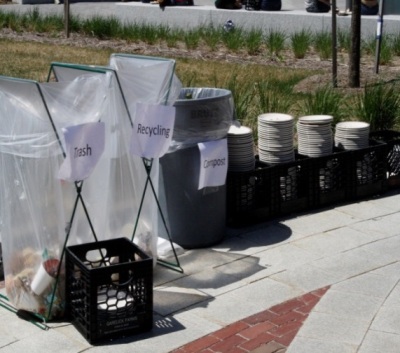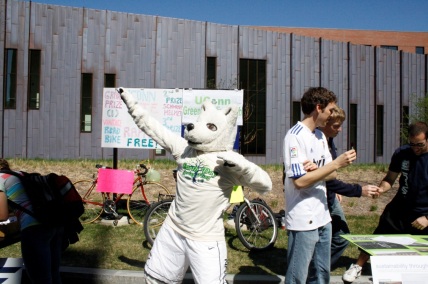By Brianna Church
The best thing about little kids is that their dreams have no limitations. Back when I was about eight years old all of my friends dreamt of being the next big pop star, the likes of Britney or the Spice Girls. The vast majority of those same friends have now abandoned the thought of singing to any audience outside of their shower heads.
My big childhood dream was a little different, though. My dream was to save the world, singlehandedly, through medicine. I know now that no individual can save the planet without help from others and, more importantly, that even very basic medical procedures make me queasy. I still have not given up my dreams of changing the world, however. I am now studying environmental engineering and hope that in doing so I can make a difference, even if only in some small way.
My passion for environmental issues has led me to two different internships as well as to a number of different clubs and activities at UConn and through all of these means I learned about the People’s Climate March.
The People’s Climate March will take place on September 21st, mere days before the UN Climate Summit is held in New York City. UN Secretary General Ban Ki-moon is encouraging the participating governments to unite and support global goals for reducing greenhouse gas emissions. Tens of thousands of people are anticipated to march in the streets of New York City in the largest environmental march in history to demonstrate that we, the people, are demanding a change.
This march will offer me the chance to show the UN and our country that both climate change and socioeconomic equality matter to me. This march will offer me the opportunity to change the course of history, one step at a time. This march will offer me the possibility to realize my dreams.
That’s why the People’s Climate March is so important to me.
Please join me and the UConn community in standing up for what is right; an economy that works for both the people and the environment. Join the tens of thousands of people that will be in the streets of New York, proving to our governments that we deserve a safe, just world to live in. Join the People’s Climate March on September 21st for the price of just one bus ticket.
If you would like to RSVP to the People’s Climate March and purchase a bus ticket from Sierra Club for $24.20 as a student or $29.48 as an adult, follow this link. For more information about this event, contact Brianna or Emily at brianna.church@uconn.edu, emily.mcinerney@uconn.edu, or at (860)486-5773.


















